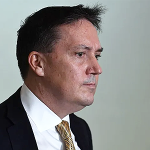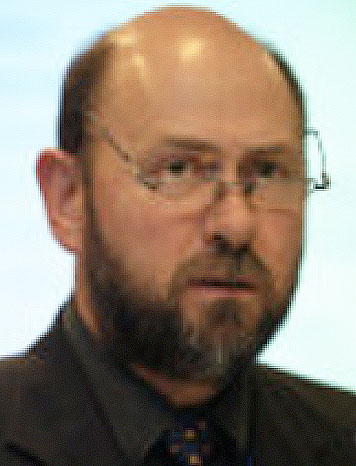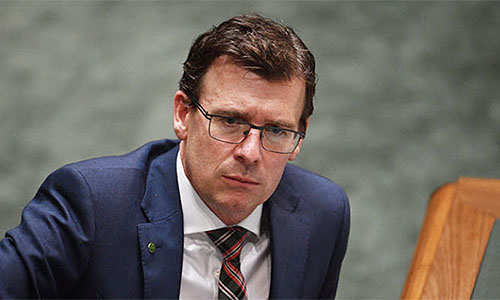
by PAUL COLLITS – GOVERNMENTS and corporates want to destroy the internet. They consider it the most dangerous tool in support of grass roots democracy ever invented.
The estimable US author Jeffrey Tucker writes at The Brownstone Institute that the censorship machine has been built and secretly put into action over nearly a decade.
- Perpetrators are closely interconnected and share goals, strategy and tactics.
- The internet is a corporatist and a global model now.
- It is all about shaping the public mind. Curation, indeed.
“Its way of doing business has been via surreptitious contacts with media and tech companies, intelligence carve-outs in ‘fact-checking’ organisations, payoffs and various other clever strategies, all directed toward boosting some sources of information and suppressing others,”| he continued.
“The goal has always been to advance regime narratives and curate the public mind.
SECRET
“And yet, based on its operations and insofar as we can tell, it had every intention of remaining secret. This is for a reason.
The phrase that struck me most – and Tucker produces memorable phrases that nail issues almost at will – was “curate the public mind”.
Curate (the verb) is defined as: To curate something is to carefully choose, arrange and present different items in order to get a particular effect.
“A systematic effort by government to bully private sector companies into a particular narrative while suppressing dissent contradicts American law and tradition.
“It also violates human rights as understood since the Enlightenment. It was a consensus, until very recently, that free speech was essential to the functioning of the good society.”
Arrange in order to get a particular effect. Think about that.
To take one example. As a search engine, “hide” positive references to a particular subject or person while “promoting” negative references.
Or as a social media platform, similarly ban certain people or, again, hide their posts. Shadow banning.
Or as YouTube, when hosting a video of which you disapprove, make some official looking statement below the video referring to some government agency “for accurate information”. The Ministry of Truth.
Or as a government, when you threaten to fine social platforms who don’t obey your orders to censor their members. You then introduce laws against misinformation, disinformation and malinformation.
Malinformation is information that is true but which may hurt us!
They are now that blatant. They rely, of course, on the fact that they have distracted the masses so completely that won’t even notice the con.
Perhaps today’s politicians, bureaucrats, NGOs, media and academics, all signed up to the official line or simply bought, have all watched the excellent TV series about grifting, Hustle.
And taken copious notes.
These are all examples of curating 2.0. Narrative protection by governments and corporates is as old as the hills.
In the 1980s, it was called “spin” and those who practised it were called “spin doctors”.
REPUTATION
Often they were press secretaries in government or public relations gurus. They aimed only for reputation protection. To save their ministers’ political skins. Or to shape product narratives. Simple commercial goals.
Now they are called “fact checkers” and their far more sinister trade is now often plied on behalf of other parties.
They aim for the control of minds and, ultimately, for a totalitarian order.
Going back further, we had George Orwell, writing in the 1940s. He was fearful, but also unknowingly predictive, in ways that he never could have imagined.
He worried about totalitarian regimes. He never realised that liberal democracies could be the engines of oppression, let alone corporations and the then emerging managerial class, so eloquently described by US politicial theorist James Burnham, also in the 1940s.
European academic FA Hayek saw some of it coming when he penned The Road to Serfdom. Even Hayek didn’t know the half of it.
Before Orwell, we had Edward Bernays, the father of propaganda, who was writing his tomes in the 1920s. And his own efforts were largely designed to help corporations shape consumer tastes. It seemed so benign and innocent back then.
It goes back even further.
Shakespeare, eloquent as he was, did his bit on behalf of the Tudors, for example in relation to the trashing of Richard III. He did a damned good job.
Richard was buried, literally and reputationally, for half a millennium. The whole of Whig history was written in service of the winners.
Likewise, the Reformation story in England. It was a one long story of Protestant regime protection. The very notion of “the right side of history”, practised down the ages, is a long exercise in narrative building.
GASLIGHTING
It is still rolled out today at every opportunity. It is a case of bullying and of gaslighting.
No, propaganda and narrative shaping date at least from the Roman Empire, and the time of Julius Caesar and Mark Antony. And Pontius Pilate.
All throughout history, those in positions of power have been in the business of circling the wagons and of shaping narratives.
Only now, the tools at the disposal of the ruling elites are all encompassing, ever more subtle and ever more devious.
And, as Tucker notes, done in secret. Until they are found out.
The perpetrators are closely interconnected and share goals, strategy and tactics. It is a corporatist and a global model, now.
To take one infamous Australian case, look at the “get Pell” campaign that saw an innocent Cardinal spend 405 days in prison and later die with only a tenuous hold on his reputation.
The interconnections were astonishing in that case, the shared goals of the perpetrators set, quietly, in concrete.
SHAPING
The narrative shaping was sophisticated and thorough. And exquisitely timed for maximum damage. They all but succeeded.
It was all about shaping the public mind. Curation, indeed.
Jeffrey Tucker laments that now many young people wish for a career as a “disinformation specialist”.
Mummy, when I grow up, I want to destroy liberty and democracy by telling lies and covering up the truth, in service to the rich and powerful. A mighty aspiration, indeed.
I understand that Facebook employs 15,000 fact checkers. I bet Zuckerberg and the other guy in the Palo Alto garage never anticipated this.
The next generation of truth shaping cadres seems ready to go.
The good news is that we know what they are up to. The bad news is that we can’t do anything much about it, and it may very soon be too late to try.
After all, as Tucker concludes, they want to destroy the internet, the closest thing to a tool for grass roots democracy that humans ever invented.
They can’t have that.PC













Grass roots democracy has already bagged affordable off-grid AI technology for when tyranny takes away free speech on the internet (visit Brigteon.IO, Brighteon.AI and BrighteonU). Same way social media grass roots democracy wised up thinkers everywhere with gadgetry and advice to thwart and dodge their scamdemic surveillance, tracking and tracing.
Meanwhile promotion of Anthony Albanese’s big green “Made in Australia Agenda” awaits a taxpayer-funded $1bn yet-to-be-developed fault-tolerant quantum computer in Brisbane so we can look forward to even more experimental mass medication from Big Pharma. AND better batteries for their self-combusting EVs. PLUS, presumably, more promotions like the cheap-as-chip fares for similar dubiously fabricated public transport no self-respecting Elitist would ever be found dead in.
Just some of the more compelling reasons “Governments and corporates want to destroy the internet” — not so much to kill off grass roots democracy but to kill democracy once and for all.
The left realised too late the power of the internet. They thought it would be nothing more than old music videos, funny cats, and occasional fart jokes.
But the electronic opiate of the masses had powers beyond their imagining.
They might get the genie back into the bottle, but I doubt it.